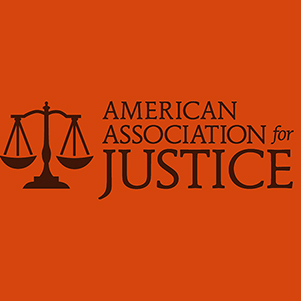Frequently Asked Questions
If you have been charged with a crime, you undoubtedly have a number of incredibly important questions about your rights, your charges, and your future. Unfortunately, getting answers to these questions is not as easy as it should be. Fortunately, our Dallas legal team here at the Law Offices of Mark T. Lassiter has compiled a list of some of the questions that we are asked most frequently by clients and potential clients, along with their answers. We hope that these help answer some of the questions that you have right now. If they don’t, or if you’d like to discuss any of these questions or their answers in more detail, please call us today at (214) 845-7007.
What constitutes probable cause?
In order for a police officer to perform a search of someone’s belongings or make an arrest, he or she needs a good reason to do so. This, in legal terms, is called probable cause. For example, should an individual smell of drugs or visibly possess drugs, a police officer would be justified in searching that individual. However, when a police officer makes an arrest or performs a search without probable cause, any evidence acquired from such an arrest or search will not be admissible in court.
Am I obligated to allow a police officer into my home?
When an individual is suspected of any criminal activity, police officers may attempt to enter and search your residence for any evidence that may be used against you. Since your home and belongings are protected from unlawful search and seizure under the Fourth Amendment, any police officer who wishes to enter your place of residence must present you with a search warrant that they legally obtained from a judge. When search warrants are not obtained, and a police officer enters your home to collect evidence, whatever evidence that is obtained will not be admissible in court.
If I plan on pleading guilty, how can a lawyer help?
Even when a person plans on pleading guilty, a criminal defense lawyer can potentially help reduce any possible consequences of a conviction. Aside from potentially reducing the severity of charges or legal penalties, a criminal defense lawyer can help advise you on the best possible course of action.
What questions should I ask a potential lawyer?
Hiring an attorney for a criminal defense case is extremely important, and you want to make sure that the person you hire will defend you to their utmost possibility. To make sure you get a good fit, consider asking some of the following questions initially:
- Have you represented someone like me in the past? What was the result?
- What do you charge? Do your fees change, win or lose?
- Will you be available to talk during the case, or are you not around much?
- What can you do about appeals?
These questions can help you not only understand a lawyer’s general practices, but can also be a gateway to more in-depth questions if you think he or she might be a good fit.
What are some common defense strategies?
This depends largely on the type of criminal charge a person is facing, as the defense employed for a murder charge will likely vary greatly from a charge of drug possession. However, some tactics your attorney might use to build a defense include locating witnesses, using your alibi, proving reasonable doubt, proving temporary insanity, proving that the prosecution is wrong or lying, and more. To get a better idea of what defense strategies you may be able to use in your situation, call an attorney from the Law Offices of Mark T. Lassiter.
How long will my case take?
It is extremely difficult to provide an estimation of how long a case can take when it comes to criminal charges. This is largely due to the highly individualized nature of these cases. Depending on whether your case go to trial, if administrative or legal barriers occur, and other factors, the length of your case could range anywhere from a few months to many years. The best way to get a more accurate estimation for your specific case is to speak with a lawyer from the Law Offices of Mark T. Lassiter.
Do I need to hire a lawyer if the state will provide me with one?
If you have been arrested, you will be given the chance to secure your own legal representation, or the state will provide you with an attorney. Unfortunately, state appointed attorneys are often overworked and have many cases they are handling simultaneously. As a result, they may not be able to give your case the attention and time it deserves. By retaining private representation, you can make sure that your lawyer will be attentive to your case and dedicated to protecting your rights and freedoms throughout the legal process.
Is there a difference between DWI and DUI?
In the state of Texas, DUI is a criminal charge that is exclusively given to drivers under the legal drinking age, 21, who are found to be driving with any amount of alcohol in their system. DWI, alternately, is the legal charge given to drivers over the age of 21 who are suspected of driving under the influence of drugs or alcohol.
Is it possible to have criminal charges cleared from my record?
In the state of Texas, there are certain ways that an individual can have some criminal charges removed from their record, or sealed so that they are not visible. While options like expunction, record clearing, and non-disclosure are available in certain circumstances in Texas, it is important to consult with an attorney about the specific details of your case, as these options are not available in all circumstances.
How are juvenile cases handled differently?
Typically when a juvenile is convicted of a crime they face extensive community service, probation, or time spent in a juvenile detention center. In some cases a juvenile will be sentenced to jail time with a reduced sentence. In rare cases, where crimes are particularly violent or extensive, juveniles can face harsh criminal punishments. To discuss these topics in more detail, contact an attorney today.
What financial penalties am I facing if convicted of a property crime?
This depends primarily on the value of the property involved. If a person is convicted of a property crime, the penalty will be equal to, or exceed, the value of the property in question. In cases where harm or assault occurs during the property crime, the penalty is typically even higher. The exact penalty that someone may face could be difficult to determine initially. You should be able to get a more clear idea of the related of the consequences that you face by speaking to a lawyer.
What’s the difference between possession and distribution?
A person could be charged with drug possession if they have any amount of an illicit substance on their person or property. Distribution charges, on the other hand, can be brought against a person intending to sell or distribute the drug. Penalties related to these charges vary. If you have been charged with a drug crime, consult with a criminal defense attorney to learn more about the exact penalties related to your case.
What is the Difference between Theft and Robbery?
While both theft and robbery involve the act of intending to take and maintain another person’s property without their consent, the consequences of a conviction are quite different. To be considered robbery, an individual must threaten or injure a person during the alleged act of theft. It is this element of alleged violence, then, that enhances the sentencing for robbery charges. Since robbery is a felony crime in Texas, convicted individuals will face the personal and professional challenges of being a felon. On the other hand, theft could either be considered a misdemeanor charge or a felony charge depending on the value of the property allegedly stolen.
When does Theft Become a Felony?
When the value of the property stolen is $1,500 or more, an individual may be charged with a felony theft charge. These charges carry with them the possibility of incarceration ranging from 180 days up to two years, in addition to a fine of no more than $10,000. A felony of the third degree theft charge will be pursued if the value of property stolen is more than $20,000, but less than $100,000. When individuals are convicted of third degree felony theft, they may face two to ten years in prison.
Will a Prior Conviction Affect My Current Theft Charges?
While each case is likely present its own unique set of circumstances, a prior theft conviction will likely affect any later theft charges. For example, if an individual has been convicted of any level of theft, any current charges of theft that involve less than $50 of property (a Class C misdemeanor) will automatically become a Class B misdemeanor. As such, an individual may face the possibility of jail time for an alleged crime that would otherwise only carry a fine. Individuals facing this situation should discuss the particulars of their case with an experienced attorney in order to understand how your charges may be affected by any previous convictions.
How is a jury chosen for a trial?
Juries are chosen from the community that a crime was allegedly committed. In the initial selection phase, randomly selected community members will be questioned in order to see if they qualify. The lawyers involved in a case will then select jurors from a pool of qualifying community members. In this final stage, your lawyer will question potential jurors to ascertain any potential bias they have that may skew any judgment they may make. Once jurors have been satisfactorily questioned by both lawyers, a final selection will be made.
If I was not read my rights, can I still be convicted?
The Miranda rights are intended to inform a suspect of their rights during the criminal process. While most police officers will recite the Miranda rights to a suspect as he or she is being taken into custody, it is only legally required that they be read when a suspect is going to be interrogated by police officers. As such, if a police officer does not, interrogate a suspect, it is not required by law that a police officer read the Miranda rights.
At what point should I hire a criminal defense lawyer?
In almost every circumstance where criminal charges are being pursued against you, it can be critical to secure legal representation as early on in the process as possible. With legal representation you can feel more certain that your rights are being upheld at each and every point of the legal process. If, however, your rights are in any way abused, legal representation can be critical to seeing that the responsible party or parties are held responsible. Furthermore, missteps by law enforcement or the prosecution may have a number of favorable results on your case, and are best ascertained by experienced legal representation.
In the course of the general criminal process, what should I expect?
Before you can be formally indicted, there will be a police investigation that you may or may not be aware of. Once authorities feel that they have sufficient cause to do so, they will arrest you and interrogate you. At any stage of your criminal proceedings, it is highly advisable that you only speak to law enforcement in the presence of your lawyer. During your pretrial hearing, you will likely be offered a plea bargain, provided the charges are not dropped. Should you and your lawyer choose to pursue a trial, a decision about your conviction will be made by either the jury or the judge. Once a decision has been reached, punishment will then be determined for individuals convicted of their alleged crime.
If I discover that I am under investigation for a crime, what rights do I have?
First and foremost, you have the right to remain silent. At no point is it advisable to speak with law enforcement officials without the presence of a lawyer. As such, you should immediately retain the services of an experienced criminal defense lawyer as soon as you learn that you are under investigation for a criminal offense. Once you have retained the services of a lawyer, he or she will be able to act as a mediator between you and investigators, in addition to being able to better inform you of what your legal rights are at each and every point of the criminal process.
If I am arrested, what are my rights?
Once you have been arrested by law enforcement, your rights are clearly outlined in the Miranda Rights. Critically, you have the right to remain silent, a right that you should probably exercise until you have proper legal representation. While police may ask you questions following your arrest, you are under no legal obligation to answer their questions, with or without a lawyer. If you cannot afford your own, private criminal defense attorney, you will be appointed a criminal defense lawyer by the court. Only after you have secured legal representation, public or private, should you begin answering any questions that you are asked by law enforcement.
At what point is a person considered under arrest?
When a person has been placed under restraint by a police officer who is executing an arrest warrant, though an arrest warrant is not necessary under some circumstances, that person is then considered to be under arrest. Once in police custody, it is critical to exercise your right to remain silent since police officers can and almost certainly will use anything you say against you later on in the legal process. At the earliest possible moment, then, it is advisable that you retain competent legal representation.
Are police officers under any obligation to inform me as to why I am being arrested?
Police officers are under no obligation to inform you of the reason that you are being placed under arrest, though, typically, police officers are more than likely to give you some general idea as to why you are being taken into custody. However, it is required by law that you be brought before a judge, who will then inform you of the charges being pursued against you within 72 hours of your arrest. Not under any circumstances should you agree to questioning without the presence of your lawyer, especially if your charges have not yet been expressed to you. Instead, it is advisable that you exercise your right to remain silent.
If I am accused of violating the terms of a restraining order, what should I do?
Violations of restraining orders are treated very seriously by law enforcement and will likely be aggressively pursued against you to prevent the restraining order from being violated again. The penalties for violating a restraining order may include such consequences as up to $4,000 in fines, up to 1 year in jail, and a number of mandatory programs. If you are facing charges for allegedly violating a restraining order, it is highly advisable that you retain legal representation as soon as possible to prevent or mitigate the possible consequences of a conviction.








